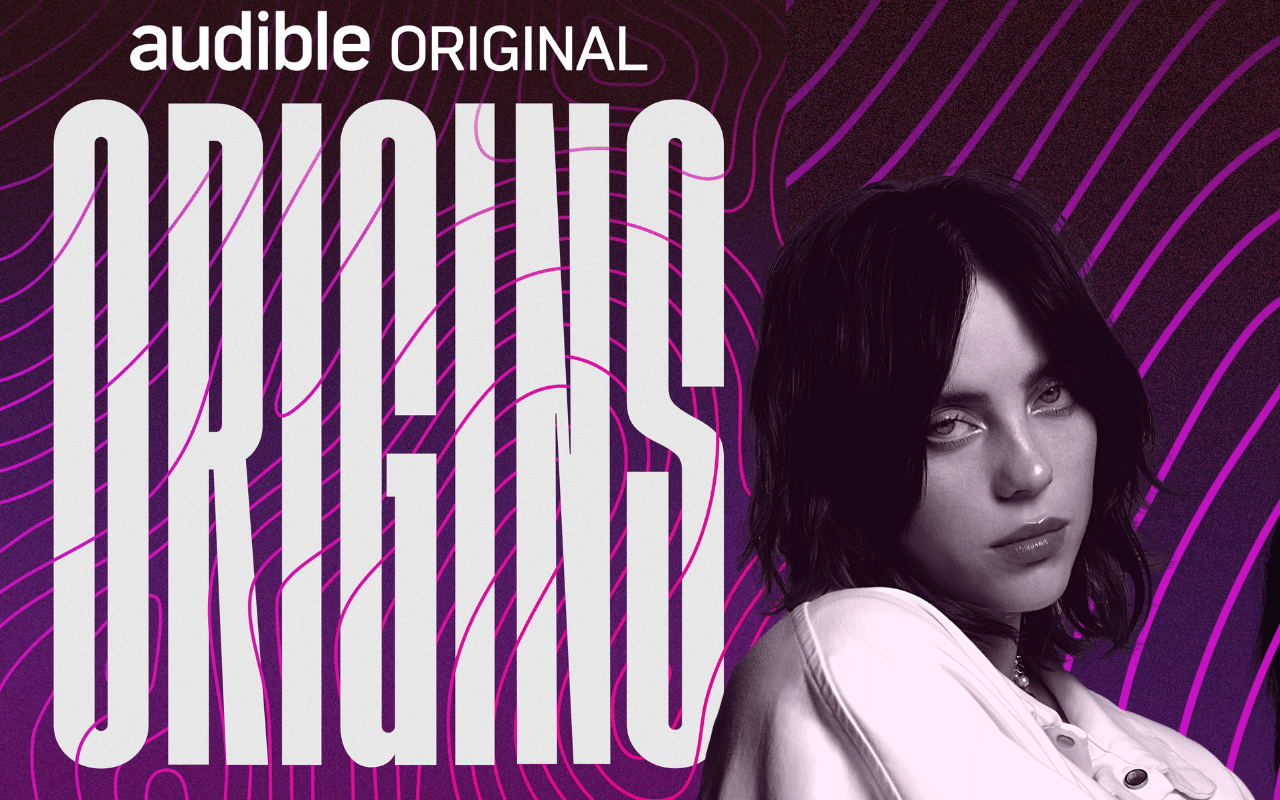
Billie Eilish is getting more vulnerable than ever before.
The 20-year-old is among eight global artists telling their ‘Origin’ stories in an eye-opening new Audible Originals podcast that launched this week.
Titled ‘Origin’, the eight-part series features boundary-breaking musicians in their most intimate form as they interpret the question, “Where are you from?”
The first episode of the series follows Grammy winner Billie Eilish as she rejects the idea that who she was yesterday is who she has to be tomorrow.
Throughout the episode, Billie discusses her childhood and how she sometimes felt overwhelmed by the amount of freedom that she had. “Sometimes I just wish that I was forced to go to school and I didn’t have to think about my life or think about this and think about that,” she says.
“I had all these ideas and it doesn’t matter how much freedom you have – it’s hard to actually take advantage of it. Like I know what the fuck to do with it. You kind of feel too powerful. You know, when you have a blank canvas in front of you and you have paint and paint brushes. You’re like what the hell do I draw.”
Billie shared that this feeling became so overwhelming and it drove her to write such ‘dark’ music very early in her life at 10 and 11 years old.
“It was so weird to me when I was first coming up and, and the thing everybody said was, like, ‘Billie Eilish’s music is so depressing and it’s so sad and it’s too dark,’ and I was like, ‘What are you talking about? Have you listened to The Beatles and As My Guitar Gently Weeps, and Yesterday and Lana Del Rey? Like, what the hell?’ It was so surprising to me that people thought anything I was creating was dark. I mean, it’s real,” she explains.
When questioned about whether or not she has doubts about the music ever getting ‘too real’, or if it actually helps her with her pain she said, “I do have doubts when I’m creating and being vulnerable and be and being open about whatever I’ve been through. And I feel stupid sometimes. I’m like, why is this even you know, I don’t need to talk about this. This is way too open. When I hear from fans to my face, when they say like, you know, this song saved my life. You can imagine all the ways that that would be hard to hear. But it’s a really amazing thing that I can have any effect on people.”
Billie also opened up about her days as a dancer and the emotional and physical pain she felt when she had to stop dancing after a sudden hip injury. This pain continued onto her tours where she would face on-going injuries in her shins, ankles, and knees.
Billie closes the podcast by insisting her “origin” is not pain, instead it is living.
“It really sucks to be miserable. But it is so important with your life. A big thing that it’s taught me is that no matter anybody’s circumstances, we all do feel the same pain. I mean, we really do,” she shares. “It doesn’t matter if you’ve gone through what somebody else has gone through, if they have, it all comes from the same place.”
Other artists took on the concept of their origin from different angles. Doja Cat rediscovers her origin through a process of reinvention, while King Princess takes on origin in the frame of identity, a place where we are formed, informed, and then transformed.
You can now listen to all eight episodes of Origins on Audible.

